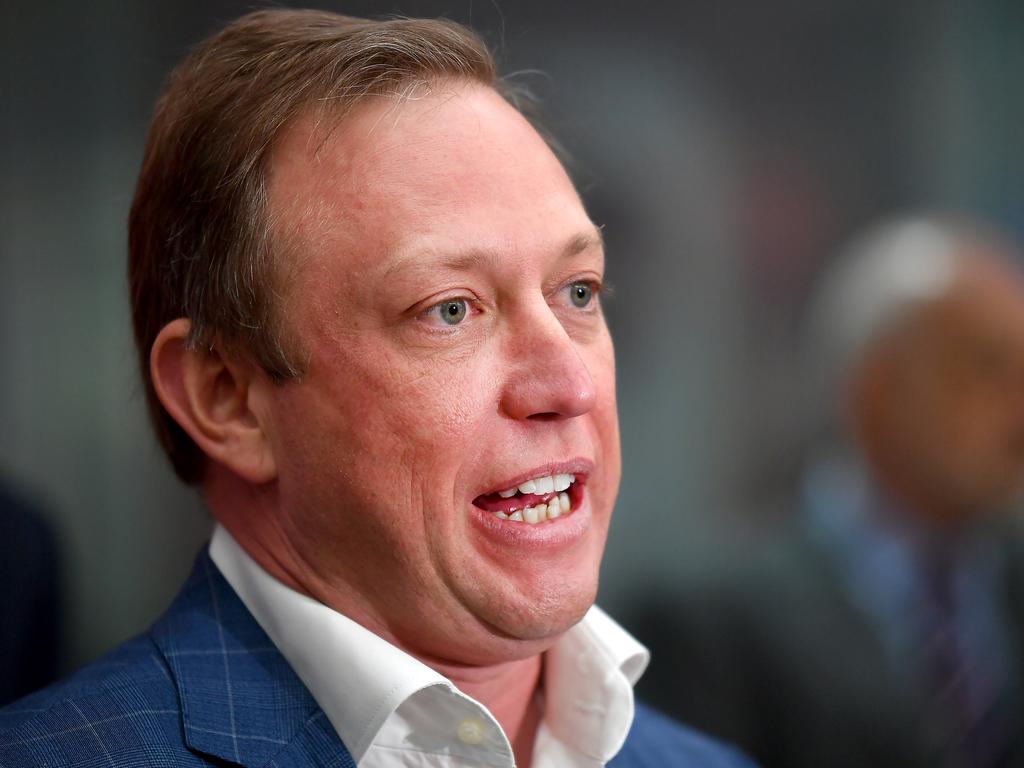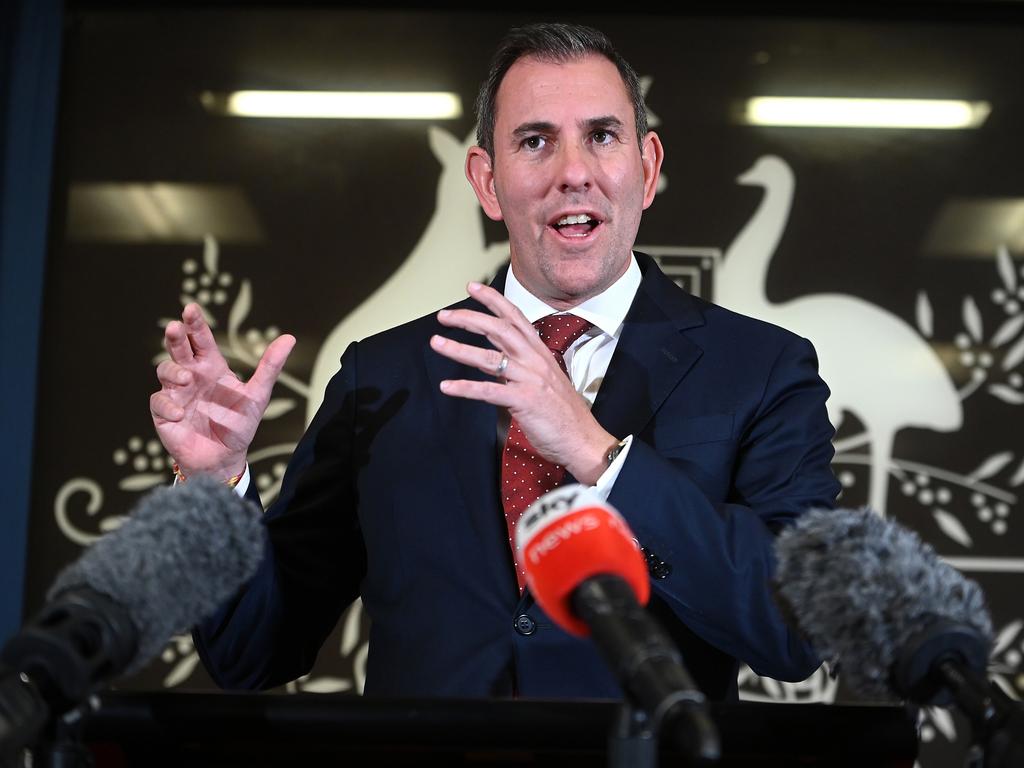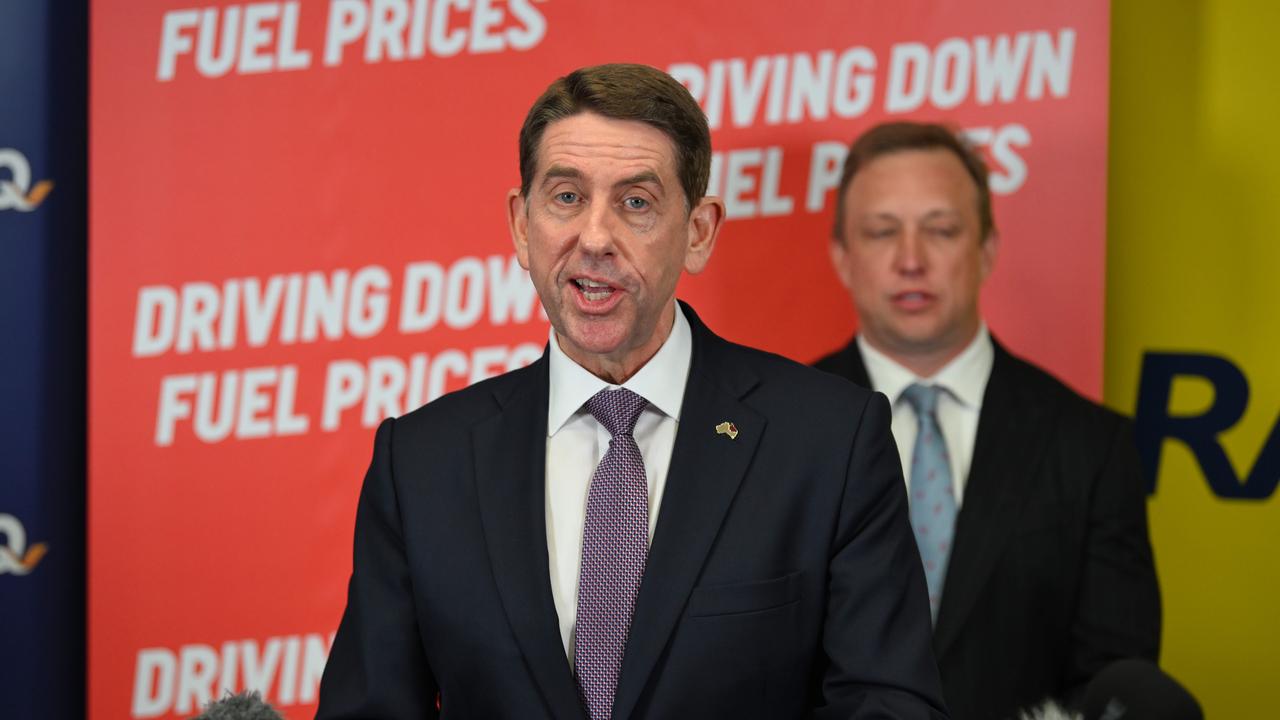Cost of living Qld: Steven Miles pledges state-owned petrol stations
Steven Miles has made a stunning admission about his pledge to open state-owned fuel stations, which the LNP has labelled “the dumbest policy by a Queensland premier”.
QLD News
Don't miss out on the headlines from QLD News. Followed categories will be added to My News.
Premier Steven Miles has admitted an election commitment to open state-owned fuel stations at a cost of $36m was not backed by modelling or research.
The extraordinary market intervention designed to lower prices includes banning fuel giants from hiking prices by more than 5c a litre a day.
“This is an election commitment, so it hasn’t been produced by the public service,” Mr Miles said.
“This is a commitment that we are making that if elected in October, we will implement this package of initiatives,” he said.
Both the LNP and the Australasian Convenience and Petroleum Marketers Association have slammed the idea and the lack of consultation, saying it could actually make things worse for Queenslanders.
Opposition Deputy Leader Jarrod Bleijie unleashed on Mr Miles, declaring the proposed policy “economic vandalism”.
“This would have to be the dumbest policy I have seen announced by a Queensland premier,” he said.
“He will wipe out independent retailers. What is he going to say to the mum and dad that have to close their business down, therefore creating less competition and opportunity in the marketplace, therefore driving up petrol prices.”
Mr Miles will use his first agenda-setting State of the State speech today to outline the major cost-of-living election promises, and declare the household budget of Queensland families is the most important economic yardstick.
In an extraordinary move, he will promise a Labor government awarded a fourth term will use planning “call-in powers” and government-owned land so that smaller players and independents in the fuel station sector could set up shop.

A dozen state-owned fuel stations would also be established in areas where competition was most needed across Queensland. The publicly owned fuel stations would operate on a cost-recovery basis, sell petrol and diesel, and provide electric vehicle fast chargers.
Mr Miles has also committed to working with motoring body RACQ to trial a daily limit on increases in petrol prices to no more than 5c a litre a day.
Petrol stations would also be made to release price changes a day in advance.
Australia’s retail peak body warned the state-owned servo plan could “push small, independent operators out of the market”
“Retailers understand that cost-of-living is a huge issue at the moment, but we are concerned that such a dramatic proposal has been put forward with zero consultation,” interim National Retailer Association chief executive Lindsay Carroll said.
“12 government-run fuel stations across a vast state like Queensland is no silver bullet for the price consumers pay at the bowser. But we are concerned that small, independent-run stations will be chased out of the market by a taxpayer-funded competitor who undercuts them.
“We’re yet to see a compelling case for this level of intervention into the fuel market. There needs to be a lot more detailed provided, including how much it will cost taxpayers.”
The head of a national infrastructure peak body has slammed the government’s servo plan as “economically bereft and fiscally flawed”.
Infrastructure Partnerships Australia Chief executive Adrian Dwyer said it was “a bit sad to see debate get to the point where an idea like this escapes the brainstorm session into the real world”.
“It is economically bereft and fiscally flawed,” he said
“As a rule of thumb, if there’s no one else in the world even suggesting this solution, it’s unlikely to be the right solution for Queensland.
“It’s not going to work and it soaks up taxpayers’ dollars that are better spent on things like schools, hospitals and Olympic venues.”

Federal Treasurer Jim Chalmers said he was “not concerned” about the state government’s plan to own its own servos.
He indicated there were no constitutional or federal roadblocks to Queensland’s plan that he knew of.
“I really believe that the Queensland Government is doing what it can to ease and alleviate the pressures that Queenslanders are under, and state governments around Australia are going about that in different ways,” Mr Chalmers said.
“Whether it’s the energy bill relief or other cost of living relief being provided here in Queensland and in other states, I welcome the fact that the state governments are prepared to play a role in easing some of these cost of living pressures that people are under.”
Treasurer Cameron Dick said the state didn’t currently have laws in place that gave them authority to intervene in the fuel market, and the election promise was about garnering a mandate to put necessary legislation in place.
“It’s been clear since the 1990s that states doesn’t have power in respect of fuel excise … we can’t regulate the underlying international oil price … we can’t do that,” he said.
“So any regulatory intervention … we can apply at a retail level, and that’s what we’re talking about.
“It has to be targeted and reflective of fundamental market dynamics, it’s about bringing stability into pricing in Queensland.”
Mr Dick said the government anticipated it would take a year to have the necessary laws in place.
He said it would cost $36m to set up the state-owned servos – or $3m each.
It’s understood the government would place the state-owned stations on surplus Department of Transport and Main Roads land.

The price cap move comes two months after the RACQ demanded Queensland cap daily fuel price increases, though Treasurer Cameron Dick at the time said it was an issue for the federal government.
Today, LNP spokesman for Treasury David Janetzki asked what had changed in the past six weeks.
Mr Janetzki called the announcement “hairbrained” but would not say whether the LNP supported the concept of a petrol price cap.
“Those schemes being trialled in other states, we’ll watch them closely,” he said. “It’s still early days.”
Mr Janetzki said the government needed to provide more detail on its plan.
In Western Australia, service stations must notify the state’s Fuel Watch transparency at 2pm each day of what their prices will be the following day.
Those prices are then locked in for 24 hours from 6am, so motorists can make the best decision on where to buy fuel.
Mr Miles said costs associated with owning and driving a car can add up, but most Queenslanders, especially in the regions, need to get a car to get around.
“It’s not a simple issue to fix,” he said. “We don’t control global oil prices and we can’t force privately owned petrol retailers to charge less at the bowser, but a government I lead will do whatever we can to bring petrol prices down.
“Currently when you fuel up your car, you’re sending money offshore to big multinationals.
“Publicly owned fuel stations will charge a fair price for fuel, increase competition, and ensure Queenslanders have more choice when it comes to filling up.
“I am also committed to working with experts and industry to ensure fair competition in all Queensland communities, and that fuel prices can’t be jacked up by any more than 5c a day.”
The Australasian Convenience and Petroleum Marketers Association’s chief executive Mark McKenzie said lack of industry consultation “beggars belief”.
“(This has also been done) without any clear legislative mechanism for how this proposal would work in practice,” he said.
“History proves that government interference in complex competitive markets inevitably leads to higher costs for consumers – and the retail fuel market is no different.
“Small independent businesses thrive on the operation of fuel price cycles and are the ones who drive prices down. The proposed price caps will destroy these businesses and cede competition to a smaller number of large businesses.”
The Motor Trades Association of Queensland, which represents many fuel retailers, said it feared potential competition from government-owned service stations.
“While we understand the significance of reducing costs for consumers amidst the current cost-of-living challenges, various external factors play a role in determining fuel prices at the pump,” MTAQ deputy CEO Kellie Dewar said.
“Factors such as the base price of crude oil, transportation expenses, taxes, and fuel excise all contribute to this.
“Depending on the location of these publicly owned fuel stations, smaller retailers in the area may face challenges competing with the Government’s cost-recovery pricing.
“It is a very complex issue, and considerations need to be made to ensure retailers can continue to run their businesses successfully. We look forward to learning more about the Government’s plans to support independent businesses currently operating in the market.”
More Coverage
Originally published as Cost of living Qld: Steven Miles pledges state-owned petrol stations








